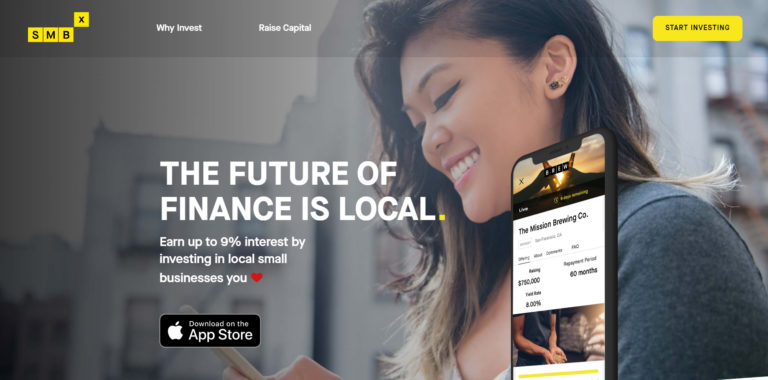Since losing my job and being forced into full time freelancing (paying debt and saving, too), I started reading more books about personal finance, freelancing, small business etc.
While I did read quite a few books in these 6 years, there are still some I failed to find out about.
Yes, I’m one of the people who lived under a rock (oh, actually living on another continent) who didn’t know who Dave Ramsey was.
I don’t listen to his shows (don’t think I could access it from here anyway), have never seen him on TV, but I did find about his book The Total Money Makeover: A Proven Plan for Financial Fitness from one of the forums I’m active on.
So, I decided to get my hands on it and see what’s all about.
While the book in itself is not really Shakespeare quality (probably it wasn’t intended as a literary marathon by its author) and I personally find amusing to read all those weird expressions like “gazelle intensity” for instance, not to mention some of these ideas being repeated ad nauseam, there is still a lot of excellent advice to be found there, so overall it makes for a great read.
The language, as I said, it’s pretty colloquial, so you’ll have NO trouble understanding it, even if you’re not a native English speaker (my case).
Few ideas I really loved in this book:
- PAY YOUR DEBT – I like it that, unlike many people who discuss debt, Dave is for paying what you owe. You are not taught how to mess up with the bank or how to try not to pay the debt. If you took a loan, do your best to pay it. It’s my personal way of life (handle your obligations and don’t try to find ways not to) and it’s refreshing to know his readers are taught to be RESPONSIBLE for the mess they got themselves into.
- DON’T DISCOUNT THE NEED OF AN EMERGENCY FUND – a HUGE percentage of Americans (and not only them) have absolutely nothing to fall back to when they get into an emergency. I have personally been in the situation when I had to take on more debt to pay for something I could have easily covered with a small emergency fund. Lesson learned.
- SAVE – for many families, living paycheck to paycheck, the idea of saving seems like a trip to Mars. Weird enough, when they really have to, all find ways to make it work. So, saving is very important, just as paying your debt is.
- DON’T BOTHER KEEPING UP WITH THE JONESES – ‘they’re broke’. I really loved this idea, since many of us have endangered our financial stability just to impress some people with the things/services we could get. We buy cars/houses we cannot afford, we go into consumer debt, just to show off and get their attention. Well, after reading the book, you might realize that nothing is more important for your family than your own security, everything else should be ignored.
- BUDGET – again, the percentage of households with no budget is staggering. How can you understand your financial mistakes, see what costs you more and how to tweak said costs if you don’t bother budget and keep a spending journal? If you want to go to battle, you need a plan. So, your budget is your plan. Do it monthly and it will help you a lot solve all your financial problems.
- STOP USING CREDIT CARDS – OK, you might dislike the idea of carrying cash, but I personally find it a better way to deal with money. While we both (me and husband) have debit cards (tied to zero overdraft bank accounts), we use cash a lot. It helps us see how our money is spent and we’re less reckless with the money. Sure, if you like paying with a card, there’s nothing wrong with it, but do yourself a favor and don’t go into debt. If you cannot prevent this from happening, set your account to have zero overdraft. Yes, it’s possible. You’ll have the people at the bank give you weird looks, but it can be done. We’ve done it, so can you. This way, if you want to pay with the card, you can pay ONLY as long as you have the money in your account. You don’t have it, you don’t buy it.
- STOP GETTING INTO MORE DEBT – many people fall prey to all those nice commercials and, while already neck deep in debt, still get another credit card or loan. This is not the way to do it. Stop getting into more trouble and do your best to get out of the mess you’re already into.
- DON’T BOTHER WITH A CREDIT SCORE – this is maybe one of the most controversial ideas in the book. Most Americans consider the credit score to be important and some of them justify their debt by trying to get a better score. If you plan on living on debt, then you need to consider this, if not, it’s worthless. Anyway, if you consider that not having a credit score might hinder your chances to get hired or anything else than a loan, you could build it up. But keep it under control, and pay your bills in time.
- BE CONSISTENT – all his ‘baby steps’ and tricks are easy to follow if you really want to become debt free and secure your financial future. It’s not something done in 2 days, it’s something that you will SACRIFICE a lot and need to do it consistently. Maybe the most important teaching from the entire book, if you ask me: without constant effort you will not make it.
The Baby Steps:
As mentioned before, I find it a bit amusing to have all these expressions, but, if it helps the point get across, they really don’t bother me.
The ‘money makeover‘ Dave Ramsey is proposing is made up by few ‘baby steps‘ you need to take in order to pay off the debt and maybe acquire some wealth later on.
While many might argue that they’re too restrictive or the order is ‘wrong‘, I personally find they make sense.
Anyway, here they are, you choose what best fits your needs:
- Baby Step 1 – Start a $1000 emergency fund. Without a fund, anything that life throws your way will have to be paid with debt. I had similar problems in the past, so an EF in my opinion is MANDATORY. In this case, even 1000 bucks might make your break your ‘bank’, so it makes sense to protect yourself from any ‘surprises’.
- Baby Step 2 – Pay off debt using the ‘debt snowball’ – yeah, another weird expression if you ask me, but again it makes sense. Sit down and write down everything you owe. His idea is to order debt from the smallest to the biggest (based on the balance) – leave the mortgage outside, this is another step. Some claim the interest rate is more important, he considers it’s easier for you to pay off the smallest balance and then go up little by little. Pay the minimums on everything else (we don’t want to get into more trouble) and push towards completely paying off the smallest balance first.
- Baby Step 3 – 3 to 6 months of expenses in savings. At this moment you should be debt free (except for the house) and ready to make your emergency fund stand more pressure, if needed. This should help you stay debt free, even if you lose your job or are faced with other problems.
- Baby Step 4 – invest 15% of the household income into Roth IRAs and pre-tax retirement – time to think about tomorrow and plan for your retirement. Don’t expect the Government to care for you, when you’re old, work on your retirement funds from now. Sure, you might find other better ways to save/invest, the main idea is to do it.
- Baby Step 5 – college funding for your children – if you consider it’s important to help them (better than have them get student loans), now it’s the time to start saving for their college tuition.
- Baby Step 6 – Pay off home early – with everything in place (no more ‘small’ debt, a well funded emergency fund, investments for your retirement and saving money for your offspring college, focus on paying off the mortgage. Afterward you’re really debt free and can focus on building wealth.
- Baby Step 7 – Build wealth and give – no more payments. No you got rid of ALL your debt. Use the extra money to have some fun, invest some more and give, if you’re the charitable type.
It can be done!
Another thing I loved about the book were the testimonials of the people who have gone through the ‘makeover’. While they’re published to market Ramsey’s shows/products, what you can get out of them is that, with planning, consistency and effort YOU CAN MAKE IT. Read the stories and get inspired.
You don’t have to agree with everything in the book. You can make your own plans and tweak them as you go. What matters most now is to take responsibility for your situation, plan well and start your debt-free journey.



